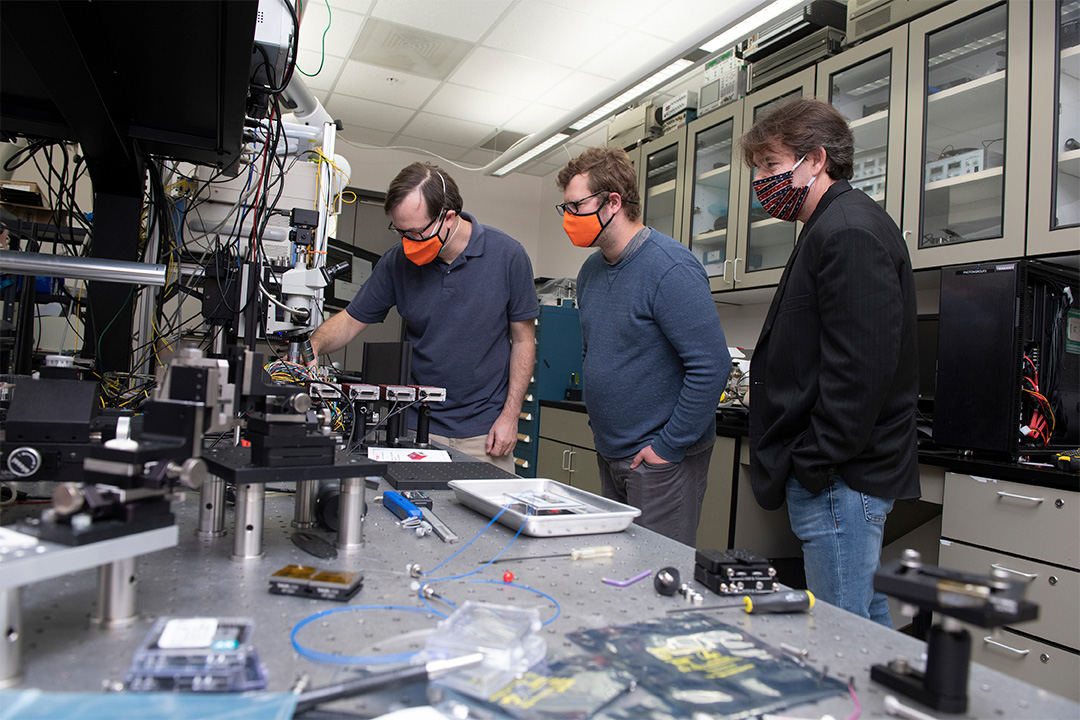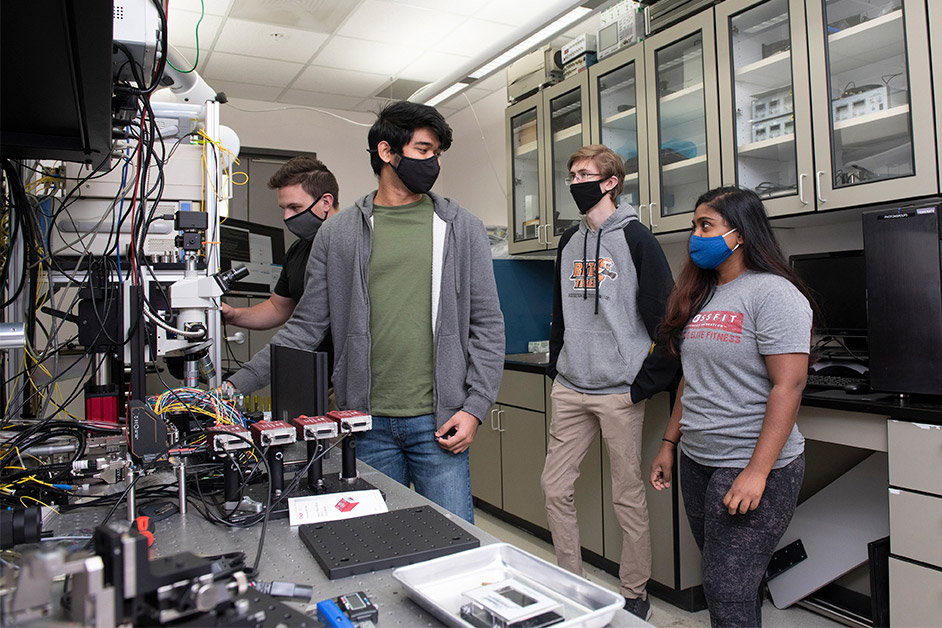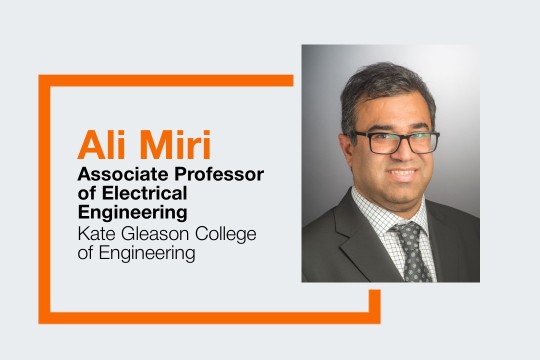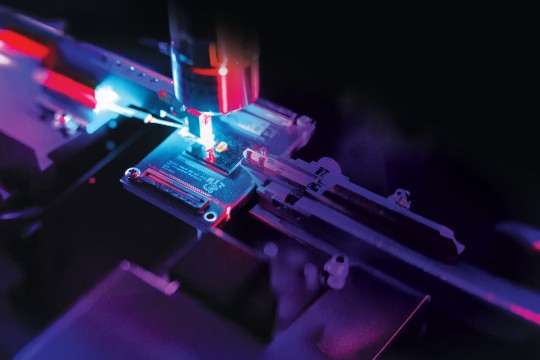L3Harris becomes industry partner for RIT’s Future Photon Initiative
The partnership opens future opportunities for research in quantum information processing
A. Sue Weisler
RITand L3Harris have entered into a new industry partnership to develop quantum technologies. RIT collaborators will include principal investigator Stefan Preble, left, and co-PIs Gregory Howland, center, and Edwin Hach, right.
Rochester Institute of Technology’s Future Photon Initiative (FPI) and L3Harris have entered into a new industry partnership to develop quantum technologies. The partners will begin developing next steps for experiments and analysis focused on quantum information processing for communication, sensing, and computing.
The exploratory partnership provides L3Harris access to FPI’s laboratory space and researchers with the goal of identifying areas they can collaborate on in the future.
A. Sue Weisler
The collaboration between RIT and L3Harris will engage students from RIT graduate students from programs such as physics and microsystems engineering.
“Right now, we’re working to come up with what some of the potential projects might be,” said Professor Stefan Preble of RIT’s Department of Microsystems Engineering, principal investigator of the grant. “This ties into our strengths nicely. The ultimate aim is to do experiments on quantum wafers and chips, which will allow us to integrate many things together.”
The initial grant provides RIT $50,000 in funding with the goal of pursuing bigger, focused projects. Co-PIs of the grant include Associate Professor Edwin Hach and Assistant Professor Gregory Howland from RIT’s School of Physics and Astronomy, plus the collaboration will engage students from RIT’s physics master’s program and microsystems engineering Ph.D. program.
“We have a strong quantum thrust at L3Harris and think quantum will help our current and future customers and open up opportunities,” said Tim Burt, a scientist from the Quantum Solutions Group at L3Harris. “While we have good scientists and engineers within L3Harris itself, there’s a very good thing that comes from working with academics in this field. We hope to be able to learn more deeply and where the edges are of this technology.”
To learn more about RIT’s work in quantum photonic technologies, visit the Future Photon Initiative website.



